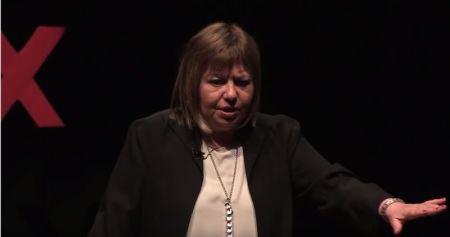Court Ruling Guts Key Law, Child Pornography Now More Likely to Be Produced, Scholar Says

A federal court ruling earlier this month scrapped important regulations on the pornography industry, a move anti-porn advocates say will likely increase the production and distribution of child porn.
Gail Dines, author of Pornland: How Pornography Has Hijacked Our Sexuality, together with University of Massachusetts-Boston professor David L. Levy, explained in a Thursday essay in The Conversation that an August 3 court decision effectively dismantled U.S. Code Title 18 Section 2257. This section required producers of pornography to maintain strict records regarding the ages of the porn actors in their films and to allow government inspectors to review those records at any time.
Although producing and distributing child porn is still against the law, without record keeping requirements the statute is essentially powerless, Dines and Levy argued, as such requirements are "the only way to verify and track performers' ages and serves as a major incentive for businesses across the complex supply chain to monitor content."
The recent ruling thus allows porn producers to use an age verification form produced by the Free Speech Coalition, the lobbying arm of the adult film industry which lauded the court's decision. It is unclear whether the Department of Justice will appeal the ruling and if they do not it will stand.
Dines and Levy believe Section 2257 is now in serious jeopardy, based on conversations they have had with legal experts.
"A lot of the lawyers that I've spoken to did say it's pretty much a rabbit hole of law. So it might be better for us to think of another way to try and prevent children from being used in pornography," Dines said in Friday phone interview with The Christian Post.

When asked what might be done at the congressional level to address this she replied that it is too early to say but said that what is needed is to assemble a team of high-powered lawyers to figure out a way forward. Dines is particularly concerned that what are known as "secondary producers," which includes internet porn distributors, are off the hook with this ruling.
"We've got to act quickly because I don't trust them to not be uploading images of children," she said.
Yet an even larger problem remains, as the porn industry lobby feeds outlier research that coheres with their preferred narrative to mainstream media outlets despite four decades of research spelling out the many ways pornography harms people, especially children, she stressed.
"You can always find junk science to disprove the weight of the evidence," Dines said of their tactics, "but if people really knew what the science said, the impact of pornography on children, on adults, on women in the industry, there would be a national outcry. It's just that it's really hard to tell the story as it really is given that we have a media that seems hellbent on legitimizing junk science."
And because the Free Speech Coalition is saturated with millions of dollars and is effective at getting news stories legitimizing porn placed, they function like a "well-oiled public relations machine" for the industry, she explained.
"Those of us who are anti-porn don't have those kinds of resources to punch out the stories like they do. If we had their resources, then we could have a proper conversation in the media," Dines said.
Failure to comply with section 2257 has resulted in steep penalties for porn producers. Most famously, in 2006 the company that made the "Girls Gone Wild" video series was fined $2.1 million dollars for Section 2257 violations. While relatively few prosecutions have occurred, such penalties do serve as a vital deterrent, Dines and Levy noted Thursday.
Interestingly, Judge Michael Baylson of the U.S. 3rd Circuit of Appeals, who ruled against the contested Section earlier this month, upheld it in a 2013 ruling. In that ruling five years ago Baylson referenced the strength of Dines' and Levy's research which showed that, contrary to the assertions of the porn industry, "teen porn" and other similar genres that featured young-looking females had grown to be approximately one-third of all internet porn in terms of both search-term frequency and proportion of websites.
"[F]or reasons unknown to us, he appears to have changed his mind and sided with the industry over the protection of children. Indeed, the decision only considered injuries to porn businesses, not to children," Dines and Levy said Thursday
Over the years the Free Speech Coalition has filed several lawsuits against the law on free speech and illegal search and seizure grounds. Eliminating Section 2257 is a key aim of the porn industry because it affects the business model of the largest corporate distributors of smut, who now regularly source content from low-cost producers around the world, they went onto explain.
"The growth of the market segment featuring young-looking females represented a potential legal threat. And distributors of porn – like other internet companies and social media platforms – want to avoid responsibility for content that could expose them to substantial legal and financial liabilities."
"The porn industry has emerged as a powerful force that is trying to shape the regulatory environment to support its shifting business model. Compliance with age verification laws might cost the industry some money, but we believe this is a small price to pay to protect children from the predatory porn industry," they concluded.





















